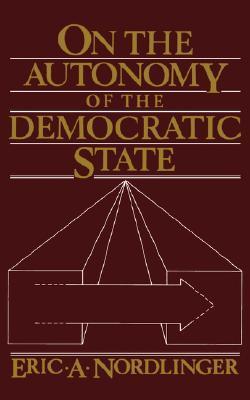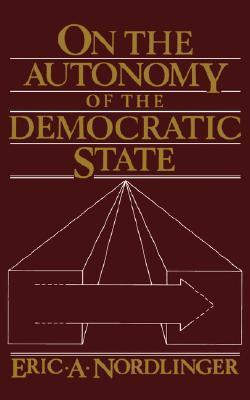This title is currently out of stock. Leave us your email address, we’d let you know when it’s in stock again!
-

A note on book covers: while we do our best to ensure the accuracy of cover images, ISBNs may at times be reused for different editions of the same title which may hence appear as a different cover.
On The Autonomy Of The Democratic State
On The Autonomy Of The Democratic State
Couldn't load pickup availability
On The Autonomy Of The Democratic State challenges the central assumption of liberal and Marxist scholars, journalists, and citizens alike—that elected and appointed public officials are consistently constrained by society in the making of public policy. Nordlinger demonstrates that public officials are not only frequently autonomous insofar as they regularly act upon their own policy preferences, but also markedly autonomous in doing so even in the face of opposition from the most politically powerful groups in voters, well-organized and financed interest groups, national associations of farmers, workers, employers, and large corporations.
Here is a book in which wide-ranging generalizations are tightly bound up with empirical examples and data. Nordlinger systematically identifies the state's many capacities and opportunities for enhancing its autonomy. These are used by public officials to shape, alter, neutralize, deflect, and resist the policy preferences and pressures of societal groups. Even the highly fragmented national state in America is shown to be far more independent of societal demands than claimed by the conventional wisdom.
Details of Book
A note on book covers: while we do our best to ensure the accuracy of cover images, ISBNs may at times be reused for different editions of the same title which may hence appear as a different cover.

-
One Line Summary
Explores how democratic states often act independently of society.
-
Who is this book for?
If you're interested in understanding the true engine behind policy-making in democratic countries, this book offers a compelling perspective. Nordlinger’s insights reveal how public officials often have their own agendas, sometimes resisting societal pressures, which could change how you see government actions. It's a thought-provoking read for those curious about the realities of political independence and state autonomy.

